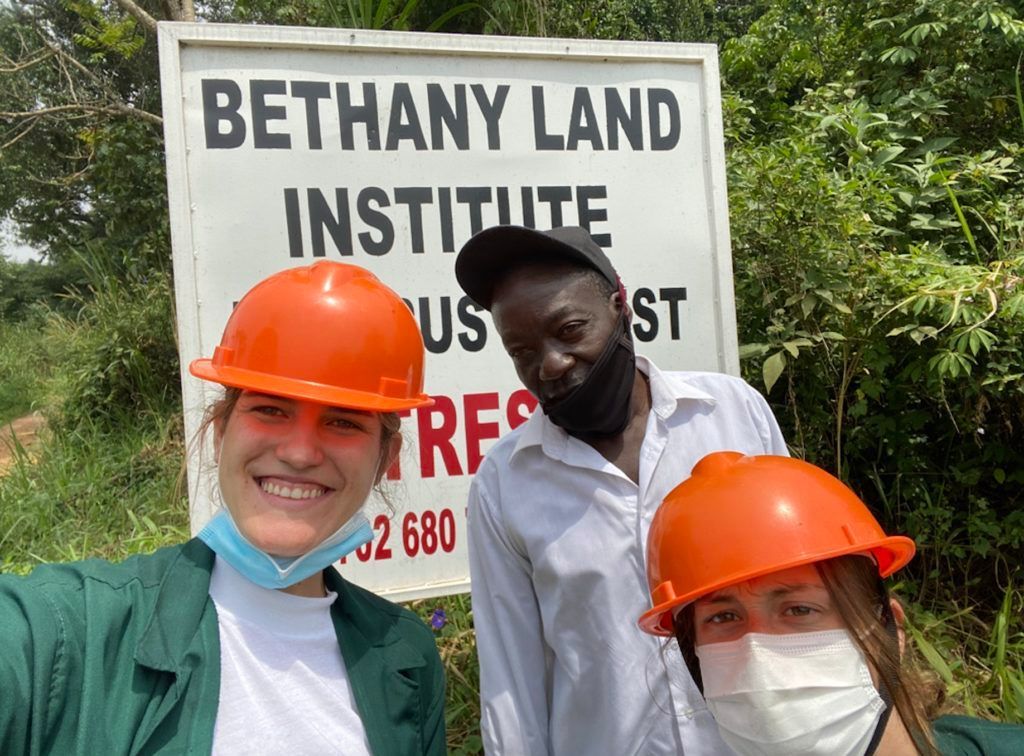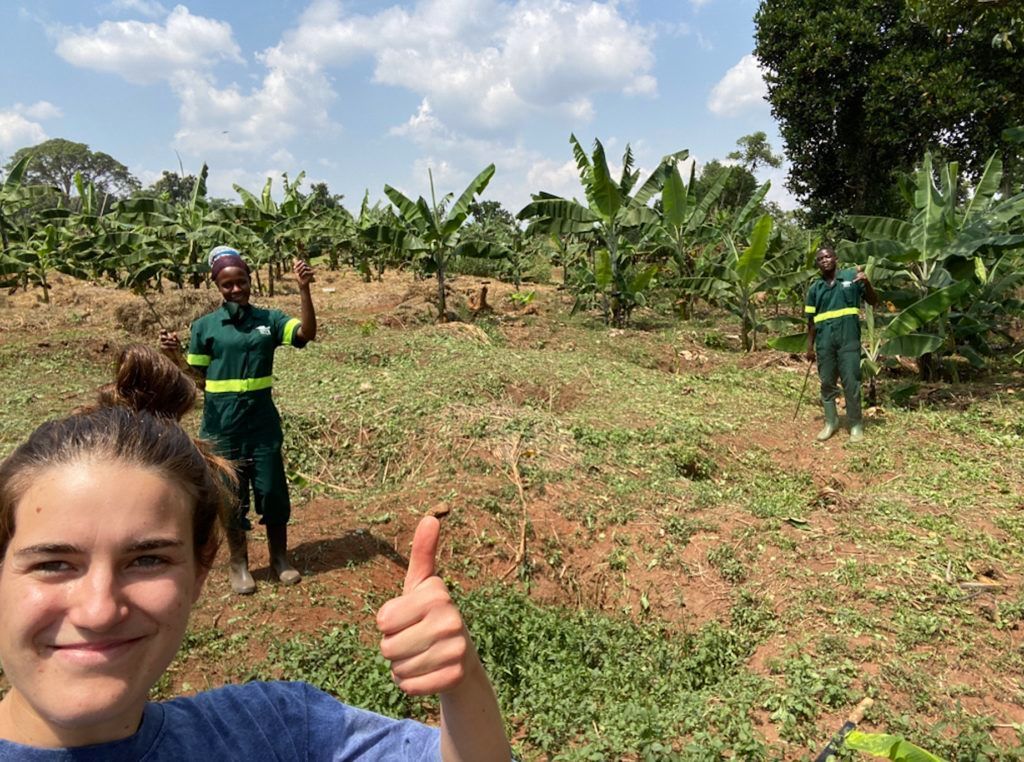The following is a reclection written by recent Notre Dame graduate Maria Orjalies Riberas. She traveled to BLI in July 2021 and will be returning in October:
“As when adjusting to life in any new country, it’s fairly common for one to find themselves in constant cultural shock, lost in translation, and dependent on those with whom one can communicate. However, despite all of the experiences that one can expect as a newcomer, the Bethany Land Institute became a home and a family during the short period of time that I spent there this past July.
BLI calls for and works toward a rural transformation in Uganda in the shape of innovative ideas based on integral ecology and its desire to respect all living things on earth, starting by respecting people like you and I and working to dignify poverty, caring for animals, those seemingly useful to human life but also those that might be wrongly perceived as dangerous or harmful because there are also part of the creation to which BLI is so dedicated to safeguarding in the form of the wilderness of a forest and the planting of trees.
During my time at BLI, I came to start to understand a new way of creating transformational leadership and why it’s necessary to change Africa at a grassroot level. Change happens in the details and through the passionate exchange of ideas that can be understood within the context of our lives but also applied to the greater society. BLI is doing it by training caretakers in integral ecology by teaching all those willing to listen about the health benefits that eating organics has and about how we can take care of creation in our everyday lives. However, BLI is also reaching toward changing its community by highlighting this idea of taking care of creation while dignifying the poor and attempting to bring the community into the transformational change that they hope one day will reach the whole of rural Uganda.
BLI is born in the intersection of the desire to care for the environment, a strong conviction that education is what lifts people out of poverty and gives families the hope of a better future, and the belief that economic sustainability is necessary to creating lasting change. Therefore, the importance of one does not shadow the others, but any decision must take them into account to better flourish together.
To teach caretakers, BLI has a team of servant leaders, dedicated to a common passion which they have successfully ingrained into the caretakers. All caretakers speak about integral ecology from the bottom of their hearts and with full grasp of the concept. This concept now informs their decision and has made an impact in their hopes and dreams as they graduate from the program as many of them shared with me their plan to one day set their own farms based on BLI’s model.
Innovation, then, is based on how we might make useful the wasteful outputs that we ourselves produce, or how we might make profit out of our own needs, for example, by mix-cropping value pests repellents with crops in which pests are common. Everything in nature
is connected and integral ecology makes us see that the further away we move from that connection, the more harm we bring unto ourselves and our communities.
BLI’s believe that nurturing that connection and interdependence, as preached on the encyclical Laudato Si by Pope Francis, is a mindset that will bring about change to rural Uganda. Change that has the potential to revolutionize the life and future of many as the country continues to develop and face the challenges of culture, ways of doing, and ways of understanding. This potential, then, is what I witnessed during my time on campus, as this mindset was widespread and nurtured within everyone there. No one left unchanged because the truth is that it matters how we take care of mother earth, it matters the quality of the food that we give ourselves and the future generations of any country, and it matters that change brings about an equal ground so that people who have been overlooked and misrepresented through time can become agents of transformational change in the form of leadership at a local level, that then, changes the overall leadership structures.”


The post BLI Visitors: Sanyu Maria’s Reflection appeared first on Bethany Land Institute.
